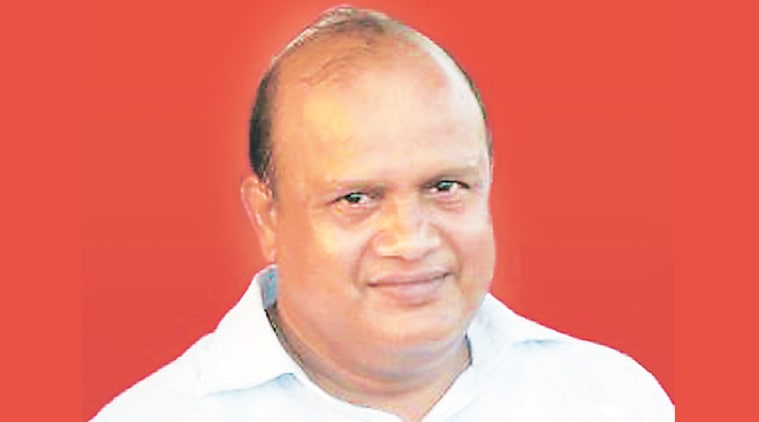Stay updated with the latest - Click here to follow us on Instagram
Jharkhand Rajya Sabha polls: To quash talk on cross-voting, MLA asks EC to disclose his vote
Claiming that his political life was under the scanner, Chatterjee wrote: “Revealing of my individually attributed vote during Rajya Sabha elections (will facilitate) the cause of ascertainment of my individuality and political character.”
 Arup Chatterjee
Arup Chatterjee
In order to quash speculation that he cross-voted in favour of the BJP-led NDA in the recently concluded Rajya Sabha elections, an MLA from the UPA fold has sought disclosure of his vote by the Election Commission.
Arup Chatterjee, Nirsa MLA of Marxist Coordination Council (MCC), on Wednesday wrote to the Election Commission: “(I) urge… broadcasting of my independent vote… that I franchised during election would clarify rudimental details, my reputation and locus standi as Member of (Legislative) Assembly.” He added that this would clarify that he voted for the UPA.
Claiming that his political life was under the scanner, Chatterjee wrote: “Revealing of my individually attributed vote during Rajya Sabha elections (will facilitate) the cause of ascertainment of my individuality and political character.” Chatterjee has been an MLA for 15 years.
The letter was handed to the Returning Officer, from where it will be processed further.
During the Rajya Sabha elections on March 23, the BJP-led NDA could not muster the numbers to bag the second seat — missing it by a whisker — but managed to get at least 52 first preference votes for its two candidates, Sameer Oraon and Pradeep Sonthalia. Oraon of BJP and Dhiraj Prasad Sahu of Congress won the two Rajya Sabha seats from Jharkhand, following drama and confusion that lasted nearly 15 hours.
While 43 BJP MLAs and four MLAs from the All-Jharkhand Students’ Union (AJSU) party were expected to vote for the NDA candidates, it got five extra votes from MLAs belonging to smaller parties or parties having only one member in the Assembly.
One MLA from Jharkhand Vikas Morcha (Prajatantrik), Prakash Ram, was suspended for not showing his vote to the polling agent of his party, indicating that he had cross-voted. However, Ram told mediapersons that he had shown his vote to the polling agent and voted for the UPA candidate, Dhiraj Prasad Sahu. The UPA managed to get 26 votes — 18 of Jharkhand Mukti Morcha, seven of Congress and one from JVM(P).
Senior JVM(P) leader Bandhu Tirkey, the polling agent for his party, said: “I won’t comment on individuals. But we thought we have more votes than what we got. We have identified some people, but there is no point in stretching the issue.”
Sahu actually got 28 votes, but two of them got cancelled, leading to him coming out on March 23 evening and telling mediapersons that he had lost — only to be reminded by a senior BJP MLA that he had actually won on the basis of calculations.
According to one calculation, the UPA folder should ideally have had at least 31 first preference votes, leaving the NDA folder with only 20 votes for its second candidate. “We got only 26 first preference votes, which is five less than what we expected,” said a UPA leader.
Chatterjee told The Indian Express: “I had wanted a polling agent from my party. But I was told that the arrangement is only for recognised parties and not registered parties. There is speculation that I voted against the UPA candidate, which is not true. It has been happening to people like us (from smaller parties), on whom such allegations are levelled.” He added, “If I had malafide intention, I could have joined the Congress or BJP long ago. Even last time, such speculation was raised.”
He said he was aware that the vote is supposed to be a secret under the Representation of People Act. “But this needs to be discussed at a bigger level. The Election Commission ought to have a mechanism to give us ‘protection’. Otherwise, we come under attack after every Rajya Sabha election.”
In June 2016, when the BJP won both Rajya Sabha seats in Jharkhand despite not having direct numbers, Chatterjee had to issue a clarification to the media saying he had not voted for the BJP candidate.







